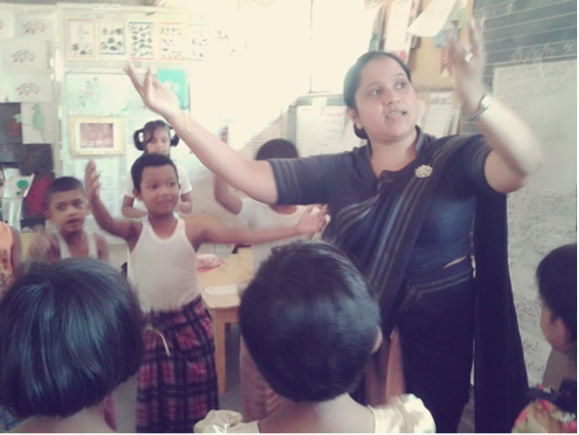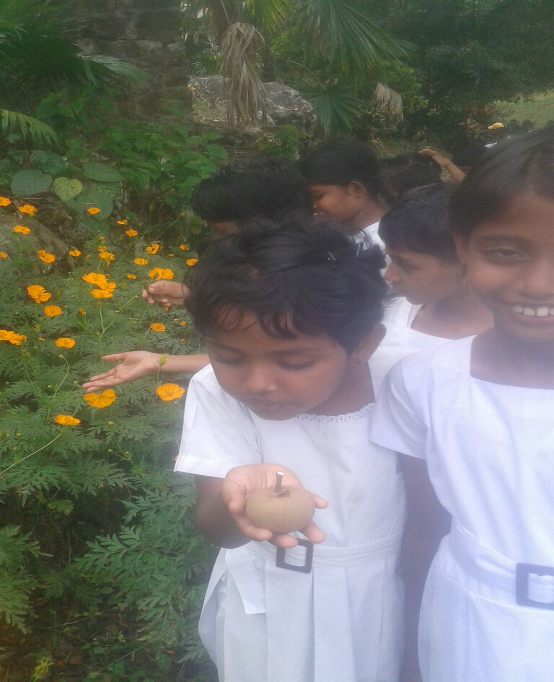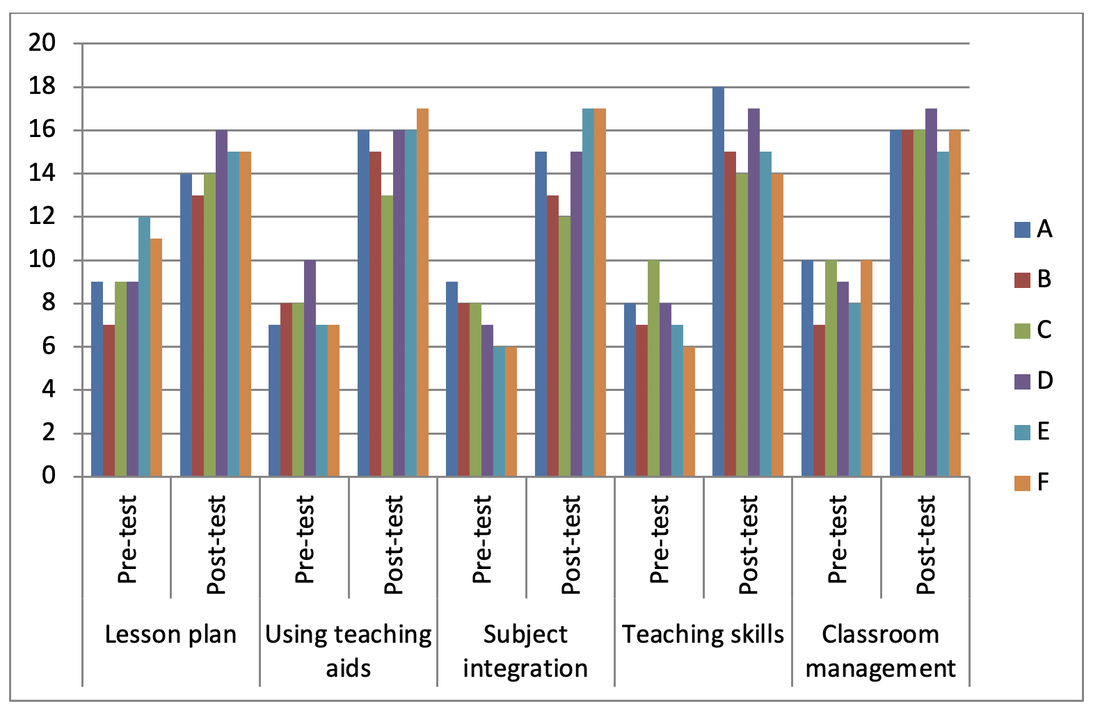- Home
- About WVN
-
WVN Issues
- Vol. 1 No. 1 (Oct. 2017) >
- Vol. 2 No. 1 (Feb. 2018) >
- Vol. 2 No. 2 (Jun. 2018) >
- Vol. 2 No. 3 (Oct. 2018) >
- Vol. 3 No. 1 (Feb. 2019) >
- Vol. 3 No. 2 (Jun. 2019) >
- Vol. 3 No. 3 (Oct. 2019) >
- Vol. 4 No. 1 (Feb. 2020) >
- Vol. 4 No. 2 (Jun. 2020) >
- Vol. 4 No. 3 (Oct. 2020) >
- Vol. 5 No. 1 (Feb. 2021) >
- Vol. 5 No. 2 (Jun. 2021) >
- Vol. 5 No. 3 (Oct. 2021) >
- Vol. 6 No. 1 (Feb. 2022) >
- Vol. 6 No. 2 (Jun. 2022) >
- Vol. 6 No. 3 (Oct. 2022) >
- Vol. 7 No. 1 (Feb. 2023) >
- Vol. 7 No. 2 (Jun. 2023) >
- Vol. 7 No. 3 (Oct. 2023) >
- Vol. 8 No. 1 (Feb. 2024) >
-
Events
- CIES 2023, Feb. 14-22, Washington D.C., USA
- ICES 4th National Conference, Tel Aviv University, Israel, 20 June 2021
- 2022 Virtual Conference of CESHK, 18-19 March 2022
- ISCEST Nigeria 7th Annual International Conference, 30 Nov.-3 Dec. 2020
- 3rd WCCES Symposium (Virtually through Zoom) 25-27 Nov. 2020
- CESA 12th Biennial Conference, Kathmandu, Nepal, 26-28 Sept. 2020
- CESI 10th International Conference, New Delhi, India, 9-11 Dec. 2019
- SOMEC Forum, Mexico City, 13 Nov. 2018
- WCCES Symposium, Geneva, 14-15 Jan. 2019
- 54th EC Meeting, Geneva, Switzerland, 14 Jan. 2019
- XVII World Congress of Comparative Education Societies, Cancún, Mexico, 20-24 May 2019
- ISCEST Nigeria 5th Annual Conference, 3-6 Dec. 2018
- CESI 9th International Conference, Vadodara, India, 14-16 Dec. 2018
- ICES 3rd National Conference, Ben-Gurion University, Israel, 17 Jan. 2019
- WCCES Retreat & EC Meeting, Johannesburg, 20-21 June 2018
- WCCES Symposium, Johannesburg, 21-22 June 2018
- 5th IOCES International Conference, 21-22 June 2018
- International Research Symposium, Sonepat, India, 11-12 Dec. 2017
- WCCES Info Session & Launch of Online Course on Practicing Nonviolence at CIES, 29 March 2018
- WCCES Leadership Meeting at CIES, 28 March 2018
- 52nd EC Meeting of WCCES, France, 10-11 Oct. 2017
- UIA Round Table Asia Pacific, Chiang Mai, Thailand, 21-22 Sept. 2017
- Online Courses
|
Abstract Co-teaching is an idea that has been around for decades; as early as 1960’s and educators have been exploring the possibilities of this collaborative teaching method (Cook & Friend, 1995). Emphasis of professional development in teacher education has been a major focus on developing Pedagogical Content Knowledge (PCK) of teachers. The main objective of this study was to examine to what extent PCK of primary teachers could be fostered utilizing co-teaching approach to implement Environmental Related Activities subject through integration in primary schools. In order to achieve this, a model on teacher knowledge which was constructed by Shulman (1987) and modified by Abel (2007) was used as the theoretical framework of this study. According to Cook & Friend’s (1995) guidelines, one teaches one assists strategy was used when co-teaching was employed. Co-teaching consisted of three phases, co-planning, co-instructing and co-assessing. Within qualitative research method 06 teachers were selected using purposive sample method as the sample. Data were gathered using lesson observations, interviews and documents. The results of the study revealed that the co-teachers were willing to share the classroom and instructional experiences with mentors and it positively affected co-teaching to be effective. It was further noted that co-teaching approach has a great input in enhance PCK of teachers. In relation to improving PCK, mentor’s role was highly influential on implementing collaborative co-planning, co-instructing and co-assessing phases. Key words- Environmental Related Activities, Pedagogical content knowledge, co-teaching Introduction The importance of teachers’ knowledge base in teaching cannot be underestimated. When emphasizing the importance of teachers in the effective implementation of Environmental education, it is suggested that teachers have to be committed (Robottom et al., 2000). But apart from commitment, they also need a good knowledge which consists of knowledge, skills, understanding about the subject for teaching Environmental education through integration. In other words, teachers must not only know the subject matter that they teach, but also the appropriate methods to transform it for the purpose of instruction (Thornton,2001). In Sri Lanka a 13 year education system consists of three stages including primary (Grades1-5) secondary (6-11) and senior secondary (12-13). The reforms in primary education that commenced in 1999, it was planned to develop basic competencies of a child during primary stage. Hence, the new curriculum was designed in order to serve as an appropriate foundation for the development of the above competencies and is identified as a competency based curriculum. This curriculum was organized to include the Environmental Related Activities and other three subjects. Environmental Related Activities referred to as a coordinating subject and integrated subject (Wicramarathna, 2012). It comprised a set of themes capable of encompassing competencies belonging to a number of disciplines (Science, Music, Dancing, Art, Physical education, Health). The integration in the curriculum introduced to be followed but it is claimed that the degree of integration in relation to the subject “ERA” in the 1999 reforms was greater than in the past (Kumari, 2018). Thus, empowering teachers to teach ERA, I conducted a study to help primary teachers acquire the understanding and skills needed to fulfill the complex role of the primary teacher. Research background As ERA subject is integrated, primary teachers must have teaching skills related to each integrated subject. I have been working as a teacher educator for 12 years, when I joined to workshops and teacher training programme I observed that primary teachers face many obstacles when teaching ERA subject through integration in primary classrooms. Due to this weakness, primary students couldn’t achieve the expected competencies by following ERA subject during their primary stage. Research findings point out that, primary teachers are frequently too theoretically oriented and often unable to practically implement in the classroom (Weerathunga, 2006). This background inspired me to implement this study in order to develop PCK among primary teachers using co-teaching approach. This study is important as its finding will help to use in teacher education. Literature Review The value of Pedagogical Content Knowledge (PCK) has been emphasized since late1980s. The teaching of different subjects requires different pedagogical content knowledge because different subjects have subject specific ways of teaching them (Tambyah, 2008). It involves the transformation of knowledge from different subject areas. Knowledge that is connected to the teaching of a particular subject matter is referred to as PCK (Grosman,,1990, Shulman,1987). Shulman formulates teachers’ knowledge base as “domains of scholarship and experience from which teachers may draw their understanding” (1999,p.61). PCK “represent the blending of content and pedagogy into an understanding of how particular topics represented and adopted to the diverse interests and abilities of learners and presented for instruction” (1999,p.64). According to the model of teacher’s knowledge base which is modified from Abell (2007), PCK has five components. These include orientation towards the teaching of a particular subject, knowledge of learners and their understanding, knowledge of the curriculum, knowledge of instructional strategies and knowledge of what and how to assess (Abell, 2007). Accordingly, first, the primary teacher’s general understanding of the teaching of ERA subject is important. Primary teachers’ orientation guides them in making decisions about instructional strategies, use of instructional materials and resources, and how to assess the learning. One way to meet the unique challenges in diverse classrooms is co-teaching. Friend and Cook (2010) described co-teaching as an approach that provides specialized services to individual students in a classroom. Co-teaching is two or more people sharing responsibility for teaching some or all of the students assigned to a classroom. In this environment, teachers blend their expertise, share materials, and develop common instructional goals (Friend & Cook, 2010). Generally, co-teaching team consists of a general educator and another licensed professional. Consequently, general and expert educators collaboratively discuss students' needs, solve problems, demonstrate instructional techniques, lead or participate in professional development initiatives, share resources, and network with other professionals and outside agencies (Dettmer, Thurston, Knackendoffel, & Dyck, 2009). Co-teaching consists of three components: co-planning, co-instructing, and co-assessing (Murawski & Boyer, 2008). In the teacher education context, teacher educator has to guide teachers on the correct path. . Hence, teacher educator has a responsibility to foster teachers’ teaching skills related to the subjects. According to the research findings, as identified co teaching as an approach to enhance teacher capacity, I utilized it for my research study. . Methodology The study employed multiple case study design. Six primary teachers were selected as the sample using purposive sampling method. This study was carried out in two steps. The first step was specially intended to examine the problems faced by primary teachers when teaching ERA subject through integration. The data were collected from classroom observations, interviews and documents (lesson plans, reflection notes) and data were analyzed using thematic analysis. In the first step, primary teachers were instructed to write their reflection notes at the end of the teaching of a lesson including “what are plus points of the lesson?” “Could I select suitable teaching methods for my lesson?” “Could I integrate subjects for the relevant topic?” “How were my classroom management skills?” “Was I able to plan a lesson correctly?” They were guided to write their experiences with examples. In addition, lessons were observed using a self-made lesson observation sheet. There were five main criteria in lesson observation sheet, namely writing a lesson plan, using teaching aids, Subject integration, classroom management and teaching skills. Lesson observations were conducted in both first and second steps. The aims of lesson observation were, to identify the problems faced by teachers in teaching ERA through integration and to examine the success of co-teaching approach to develop PCK of primary teachers respectively. Based on the results of the first step, the second step was designed under three phases. The main purpose of this step was to enhance PCK of primary teachers’ related ERA subject using co-teaching approach. In the first phase of second step, using presentation, syllabi and modules, conducted two days awareness programme. For this session Science, Physical education and Aesthetic subject lecturers were contributed. Especially in this phase the focus was to enhance teachers’ subject matter knowledge (SMK) of ERA. The second phase was organized as a three day practical session. The intention of the session was to practice what knowledge they had gained as theoretical and practical experiences from the first phase. Preparing integrated lesson plans and making teaching aids were main activities in this session. In the third phase, teachers were given two weeks for teaching ERA subject in primary classrooms. According to co-teaching approach, it consisted of three components, namely co-planning, co-instructing and co-assessing. When teaching the lessons one teach-one support co-teaching approach was utilized. Every day after teaching the lesson, during these two weeks I have planned to summon all the participants in my college premises. At this meeting, they had prepared their lesson plans and teaching aids which they needed to teach next day in schools under my guidance. The whole study was organized based on Shulman’s PCK model and Friend and Cook’s co-teaching approach. Objectives In this study, the main objective was to enhance PCK of primary teachers using co-teaching approach. Specific research objectives were, to identify problems faced by primary teachers when teaching ERA subject through integration, to develop teachers’ competencies to teach ERA through integration and assess the effectiveness of co-teaching approach when enhancing PCK among primary teachers. Results and Discussion The main findings of the study were analyzed under three themes. 1. Problems faced by primary teachers in teaching ERA subject through integration. The problems related to Subject Matter Knowledge (SMK) of ERA subject SMK can be defined as the knowledge that the teacher needs to have to be able to organize the concepts, facts principles and theories of a given discipline, and also knowledge of the rules of evidence and proof which are used to generate and to justify knowledge claims in the discipline (Abell, 2007). Further, it was revealed that, key facts, theories and principals about the integration, which is referred to as substantive knowledge and also syntactic knowledge, are not sufficient among primary teachers. Emphasizing those facts, in Sri Lankan context also illustrates that teachers of primary education haven’t got enough SMK regarding ERA subject. The problems related to Pedagogical Knowledge (PK) of ERA subject Teacher pedagogical knowledge involves knowledge of instructional principles, classroom organization and management, knowledge of the learners and how they learn educational aims (Abell, 2007). It can be argued that the application and use of knowledge in the classroom is the most important aspect of the work of the teacher. Therefore, pedagogical knowledge is of great importance because it blends content and pedagogy. When examining teachers’ reflections about their lessons 6/6 stated that their lessons were unsuccessful due to weak classroom management and could not involve the students in their lessons. During the interview, I inquired the reasons for the poor class room management. Their replies were “I can’t manage them and I can’t draw their attention to the lesson” etc. The problems related to Pedagogical Content Knowledge (PCK) of ERA subject Pedagogical Content Knowledge refers to teachers’ understanding of how they can help learners understand the subject matter. This kind of knowledge is what distinguishes teachers from subject matter, specialists, because knowing subject matter is not a sufficient condition for teaching it (Lee & Gagnon,2009). Data obtained from Classroom observation revealed that primary teachers face many problems when using teaching methods, teaching strategies for their ERA lessons. At the interviews, all teachers described their experiences regarding using teaching strategies. The major problem was they had not sufficient skills to teach science and aesthetic subject. All learning has to be assessed. Therefore, another component of teacher’s PCK is knowledge of assessment. In this, the teacher has to have experience of dimensions of ERA that have to be assessed and the methods to be used in assessment. Primary teachers had knowledge about written and oral assessment. They had written in their reflective journal “I do not understand how to assess an activity by using criteria”. 2. Developing teachers’ PCK to teach ERA through integration The intention of the second step of the study was to develop PCK of primary teachers. The end of first phase of the second step, I noted that teachers learn some concepts from sharing their experiences with their peers and discussed with lecturers individually to clear their issues. A Primary teacher (B) had written in her reflection, “Being able to discuss with lecturers individually I could solve many questions I had. Especially Science activities were much beneficial for me. I learnt how to explain a basic science concept step by step to primary students”. End of the first phase, I could understand the teachers’ views using reflection notes like above. In the second phase, I noted each teacher participated in those activities and they practiced how to teach these activities to primary students and they enjoyed themselves by singing, dancing, playing etc. In this phase, they learnt how to use teaching methods, techniques in a correct manner for the lesson. After getting theoretical and practical experiences, teachers involved those activities with more confidence than the past. The teacher “E” had written in his reflection note “I could write a lesson plan within a short period. But, before the workshop I needed about 3 hours to write a lesson plan. Although I get much time I don’t know whether it is correct or not”. When preparing teaching aids I noted that these were very creative and attractive. The evidence of teacher development shows by the following photograph (Photograph set 1). Photograph set 1- Teachers and students are involving indoor and outdoor activities of ERA subject According to the above photographs it can be seen that the teachers and students are involving in teaching learning process of ERA subject very enthusiastically.
In comparison of pre and post lesson observation scores, (Table 1) it shows teachers’ progress by using co-teaching approach. Table 1: Teachers pedagogical practices marks (ERA subject) With regard to planning lessons, a pre- test and a post- test were administered and marks were offered. Here, all the teachers showed an improvement in their lesson planning. Regarding the use of teaching aids during teaching lessons, the same procedure was carried out as above. The performances of the teachers indicated a clear difference after the intervention process. Subject integration was another area that was on focus. The marks exhibited a clear difference between the pre and post -tests. The next area of my teacher development programme was to develop teaching skills. Here too, all the teachers performed quite well. Except C, all the others showed a progress of more than 50% at the post test. When classroom management is taken into consideration, the teachers of the sample have shown a clear indication of improvement of their attempts at the post test.
References Abell, S. (2007). Research on Science Teacher Knowledge. In S. Abell, & N. Lederman (Eds.). Handbook of Research on Science Education. (1105 – 1149). Mahwah, NJ: Lawrence Erlbaum Associates. Cutter- Mackenzie, A., & Smith, R. (2001). Gauging primary school teachers Environmental literacy: An issue of priority . Asia pacific Education Review, 2 (2), 45-60. Deitmer, P., Thurston, L., Knackendoffel, Α., 8c Dyck, N.J. (2009). Collaboration, consultation, and teamwork: For students with special needs (6th ed.). Columbus, OH: Pearson Education. Dieker, L., & Barnett, C. A. (1996). Effective co-teaching. Friend, M. & Cook, L; (1995). Co-teaching: Guidelines for creating effective practices. focus exceptional children, 28,1-12 Friend, M. & Cook, L. (2007). Interaction : Collaboration Skills for School professionals, Boston : Pearson Education. Friend, M. (2008). Co-teaching : A simple solution that isn’t so simple after all. Journal of curriculum and Instruction, 2(2), 9-19. Grossman,P.(1995). Teachers’ knowledge . In L.W. Anderson (Ed). International Encyclopedia of Teaching and Teacher Education (9). New York.: Pergamon. Kumari,H.M.N.D. (2018) A study on Teaching Environmental Related Activities in Primary Schools through Integration. Unpublished Master of Philosophy dissertation, University of Peradeniya-Sri Lanka. Lee, J. C. K., & Williams, M. (2001). Researching environmental education in the school curriculum: An introduction for students and teacher researchers. International Research in Geographical and Environmental Education ,10, 218 – 244. Magnusson, S., Krajcik, J., & Borko, H. (1999). Nature, Sources and Development of pedagogical Content Knowledge for Science Teaching. In J. Gress-Newsome & N. Lederman, (Eds.). Examining Pedagogical Content knowledge: The Construct and its Implications for Science Education. 95 – 132 Hingham, MA, USA: Kluwer Academic Publishers. Murawski, W., 8c Boyer, L. (2008, November 5). What is really happening in co-taught classes? One state knows! Paper presented at the Teacher Education Division of the Council for Exceptional Children Conference, Dallas TX. Palonsky, S. B. (1993). A knowledge base for social studies teachers. The International Journal of Social Education, 7 (3), 7 – 25. Robottom, I., Malone, K.., & Walker, R. (2000). Case Studies in Environmental Education: policy and practice. Geelong: Deakin University Press. Shulman, L. S. (1987). Knowledge and teaching: Foundations of the new reform. Harvard Educational Review.57 (1), 1 – 22. Tambyah, M. (2008). Will They Know Enough? Pre-Service Primary Teachers’ Knowledge Base for Teaching Integrated Social Sciences. Australian Journal of Teacher Education, 33 (6), 44 – 60. Wicramarathne,V.(2012).Primary Education in Sri Lanka, 26,P.B.Alwis Perera Mawatha, Katubeddha: Techno Graphics. Yin, R.K. (2009). Case study Research: Design and Methods, 4th edition. Thousand Oaks, CA: Sage.
2 Comments
|
- Home
- About WVN
-
WVN Issues
- Vol. 1 No. 1 (Oct. 2017) >
- Vol. 2 No. 1 (Feb. 2018) >
- Vol. 2 No. 2 (Jun. 2018) >
- Vol. 2 No. 3 (Oct. 2018) >
- Vol. 3 No. 1 (Feb. 2019) >
- Vol. 3 No. 2 (Jun. 2019) >
- Vol. 3 No. 3 (Oct. 2019) >
- Vol. 4 No. 1 (Feb. 2020) >
- Vol. 4 No. 2 (Jun. 2020) >
- Vol. 4 No. 3 (Oct. 2020) >
- Vol. 5 No. 1 (Feb. 2021) >
- Vol. 5 No. 2 (Jun. 2021) >
- Vol. 5 No. 3 (Oct. 2021) >
- Vol. 6 No. 1 (Feb. 2022) >
- Vol. 6 No. 2 (Jun. 2022) >
- Vol. 6 No. 3 (Oct. 2022) >
- Vol. 7 No. 1 (Feb. 2023) >
- Vol. 7 No. 2 (Jun. 2023) >
- Vol. 7 No. 3 (Oct. 2023) >
- Vol. 8 No. 1 (Feb. 2024) >
-
Events
- CIES 2023, Feb. 14-22, Washington D.C., USA
- ICES 4th National Conference, Tel Aviv University, Israel, 20 June 2021
- 2022 Virtual Conference of CESHK, 18-19 March 2022
- ISCEST Nigeria 7th Annual International Conference, 30 Nov.-3 Dec. 2020
- 3rd WCCES Symposium (Virtually through Zoom) 25-27 Nov. 2020
- CESA 12th Biennial Conference, Kathmandu, Nepal, 26-28 Sept. 2020
- CESI 10th International Conference, New Delhi, India, 9-11 Dec. 2019
- SOMEC Forum, Mexico City, 13 Nov. 2018
- WCCES Symposium, Geneva, 14-15 Jan. 2019
- 54th EC Meeting, Geneva, Switzerland, 14 Jan. 2019
- XVII World Congress of Comparative Education Societies, Cancún, Mexico, 20-24 May 2019
- ISCEST Nigeria 5th Annual Conference, 3-6 Dec. 2018
- CESI 9th International Conference, Vadodara, India, 14-16 Dec. 2018
- ICES 3rd National Conference, Ben-Gurion University, Israel, 17 Jan. 2019
- WCCES Retreat & EC Meeting, Johannesburg, 20-21 June 2018
- WCCES Symposium, Johannesburg, 21-22 June 2018
- 5th IOCES International Conference, 21-22 June 2018
- International Research Symposium, Sonepat, India, 11-12 Dec. 2017
- WCCES Info Session & Launch of Online Course on Practicing Nonviolence at CIES, 29 March 2018
- WCCES Leadership Meeting at CIES, 28 March 2018
- 52nd EC Meeting of WCCES, France, 10-11 Oct. 2017
- UIA Round Table Asia Pacific, Chiang Mai, Thailand, 21-22 Sept. 2017
- Online Courses






 RSS Feed
RSS Feed
